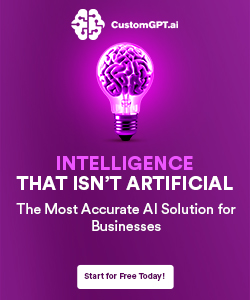With the rapid advancement of artificial intelligence, understanding the ethical considerations that come with its development is vital for you as a member of society. As AI technologies increasingly influence various aspects of daily life—from healthcare to personal privacy—it’s vital to explore the moral implications tied to their implementation. This blog post examines into the ethical frameworks guiding AI development, the responsibilities of those creating these systems, and how these technologies can shape your world now and in the future.
Understanding AI Ethics
Before diving deeper into the topic, it’s important to grasp the foundation of AI ethics. This concept revolves around the moral implications of artificial intelligence development and its application in society. As AI technology advances rapidly, understanding its ethical dimensions helps you navigate the potential consequences and benefits as a responsible stakeholder in this evolving landscape.
Definition and Importance
Among the key aspects of AI ethics is its definition, which encompasses the principles and moral considerations guiding AI design and implementation. Understanding these elements is vital for ensuring that AI systems are developed responsibly, promoting transparency, accountability, and fairness while minimizing risks to individuals and communities.
Key Ethical Principles in AI
On the topic of ethical principles, you should familiarize yourself with the core values that underpin responsible AI development. These include fairness, transparency, accountability, privacy, and safety. Each of these principles plays a significant role in shaping how AI technologies interact with users and society at large.
Further exploration of these principles reveals their interconnectedness and significance in the AI landscape. Fairness ensures that algorithms do not perpetuate bias, while transparency offers insight into how decisions are made. Accountability establishes clear responsibilities for AI outcomes, enhancing trust. Privacy safeguards personal data, and safety promotes the secure and ethical design of AI systems. By understanding these key principles, you empower yourself to engage in informed discussions regarding AI’s future and its impact on society.
The Role of Transparency in AI Development
Some may argue that transparency is important in AI development, as it allows stakeholders to understand the technologies shaping society. By promoting openness in algorithms, data usage, and decision-making processes, you empower users and the public to engage with AI responsibly. This transparency also fosters an environment where ethical considerations can be addressed, paving the way for AI systems that align with societal values.
Explainability and Trust
With increasing reliance on AI, your trust in these systems largely depends on their explainability. When you can grasp the underlying logic of AI decisions, it enhances your confidence in the technology. Clear explanations not only demystify AI processes but also enable you to make informed choices, further bridging the gap between complex algorithms and user understanding.
Accountability Mechanisms
Explainability in AI development necessitates establishing accountability mechanisms that hold developers and organizations responsible for their AI systems. These mechanisms provide frameworks for assessing performance, addressing biases, and ensuring that AI systems align with ethical standards. By incorporating checks and balances, you can help foster a culture of responsibility that minimizes risks associated with AI deployment.
Development of robust accountability mechanisms requires collaboration among policy-makers, technologists, and ethicists. You should advocate for policies that enforce compliance with ethical guidelines while also encouraging regular audits of AI systems. By doing so, you can help create a structured environment where AI technologies are continuously evaluated and improved, ensuring they serve society’s best interests without unintended consequences.

Impact of AI on Employment and Economy
One of the most significant effects of AI on society is its impact on employment and the economy. As automation and intelligent systems become more prevalent, industries transform rapidly, leading to shifts in job demands and opportunities. While some sectors may face challenges, others can benefit from increased efficiency and new business models, ultimately reshaping the workforce landscape.
Job Displacement vs. Job Creation
On one hand, AI technologies can lead to job displacement in roles that are automated, creating legitimate concerns for workers. On the other hand, these advancements also pave the way for new job creation in tech-driven industries, prompting a need for adaptation and reskilling among the workforce.
Economic Inequality and AI
To address the complexities of economic inequality, AI has both positive and negative implications that require your attention. While the technology can drive significant economic growth, it may also deepen existing disparities by favoring those with skills aligned to this new landscape. As AI continues to evolve, understanding its effects on income distribution becomes imperative for ensuring a balanced economic future.
Consequently, as AI technologies become more integrated into various sectors, you may notice that the gap between high-skill and low-skill labor continues to widen. Individuals with advanced technical expertise can command higher wages, while those in manual or routine jobs risk experiencing stagnant wages or job loss. This reality highlights the importance of lifelong learning and upskilling to equip yourself to thrive in an increasingly automated economy.
Bias and Fairness in AI Systems
Despite the potential of AI to transform society for the better, the presence of bias in AI systems raises significant ethical concerns. Addressing these biases is crucial to ensure that AI technologies do not perpetuate existing inequalities or harm marginalized groups. Understanding the origins of bias in AI is the first step towards developing fairer and more equitable systems that can benefit everyone.
Sources of Bias
To understand bias in AI systems, you need to recognize that it often originates from the data used for training algorithms. This data can reflect societal prejudices, leading to skewed outcomes. Additionally, biases can emerge from the design and development process itself, influenced by the perspectives of those creating the AI technology. These aspects highlight the importance of a thorough examination of the underlying data and methodologies employed.
Ensuring Fairness and Inclusivity
Along with identifying sources of bias, you should actively work towards ensuring fairness and inclusivity in AI systems. This involves adopting diverse datasets that accurately represent various demographics and continuously assessing the impact of AI applications on different groups. By fostering a culture of inclusivity among developers and stakeholders, you can contribute to AI that is equitable and serves society’s diverse needs.
Inclusivity in AI development means prioritizing the voices and experiences of underrepresented groups throughout the entire process. You can encourage collaboration among diverse teams, ensuring that multiple perspectives inform the technology from outset to deployment. Implementing regular audits and seeking community feedback will further strengthen the fairness of your AI systems. By committing to transparency and accountability, you establish a framework that not only mitigates bias but also champions equal representation, fostering trust in AI technologies.
Privacy Concerns and Data Ethics
Unlike traditional technologies, artificial intelligence systems often rely on extensive data collection, raising significant privacy concerns. You may find yourself questioning how your personal information is used and whether your privacy is adequately protected. As AI continues to evolve, it is vital to consider the ethical implications of data usage, especially regarding transparency and accountability in data handling practices.
Data Collection Practices
After you engage with digital platforms, a myriad of data collection practices can occur, often without your explicit awareness. Innovative AI systems prioritize large datasets for better training, requiring your information to improve accuracy and effectiveness. Understanding these practices is imperative for navigating the intersection of technology and privacy, as they can shape your experience and influence the services you receive.
Consent and User Rights
Practices surrounding consent and user rights are integral to maintaining ethical standards in AI development. You should be informed about how your data is collected and utilized, ensuring that your participation is voluntary and based on clear information. This awareness empowers you to make informed decisions about the technologies you interact with and advocate for your rights within rapidly advancing landscapes.
Another important aspect of consent and user rights is the need for clear, accessible policies that outline how your data is handled. You deserve to know what information is collected, how it will be used, and whether it will be shared with third parties. Enhanced transparency allows you to exercise control over your personal data while fostering trust in AI systems. Furthermore, as regulations evolve, you’ll benefit from strengthened rights regarding data access, correction, and deletion, promoting ethical considerations in the ever-changing realm of AI technology.
Regulatory Frameworks and Policy Implications
Not having a well-defined regulatory framework for AI can lead to a range of ethical dilemmas and societal issues. You must understand that without regulations, the development and deployment of AI technologies can result in unintended consequences, such as biased algorithms, privacy violations, and potential job displacement. Emphasizing the need for comprehensive policies can help mitigate risks while fostering innovation in the field.
Global Perspectives on AI Regulation
Around the world, diverse approaches to AI regulation are emerging, reflecting varying cultural, ethical, and legal standards. As you explore these global perspectives, you’ll see countries taking different paths in establishing guidelines that can either promote innovation or impose restrictions. Understanding these differences is key to navigating the future of AI on an international scale.
The Role of Governments and Organizations
Organizations across sectors play a pivotal role in shaping AI policies, but governments are equally tasked with creating frameworks to address ethical concerns. You ought to recognize that responsibilities lie with regulators to ensure accountability, transparency, and compliance in AI technologies. Your engagement in these discussions can influence the direction of regulations and foster collaborative efforts that align stakeholder interests.
In addition to their regulatory duties, governments work closely with organizations to formulate standards for AI practices. You may find that partnerships between the public and private sectors are necessary in developing comprehensive regulatory measures. These collaborations can help set ethical benchmarks, promote research on AI’s societal impacts, and facilitate an ongoing dialogue between technologists, ethicists, and policymakers. Engaging with these entities can empower you to contribute to a more responsible AI landscape.
Final Words
Presently, as you navigate the complexities of AI development, it’s important to weigh the ethical implications and their potential impact on society. Understanding your role in promoting responsible AI practices will shape not just your approach to technology, but also the broader landscape of human interaction, employment, and security. By embracing ethical considerations, you’re not only enhancing AI’s benefits but also ensuring it aligns with the values and needs of your community.
Q: What are the primary ethical concerns associated with AI development?
A: The primary ethical concerns surrounding AI development include issues such as bias in algorithms, privacy implications, and accountability. Bias can occur when AI systems are trained on data that reflects societal prejudices, leading to unfair treatment in applications like hiring or law enforcement. Privacy concerns arise when AI technologies collect and analyze personal data, potentially compromising individual rights. Lastly, accountability is a significant issue as it can be unclear who is responsible for the decisions made by AI systems, especially when errors occur or harm is caused.
Q: How does AI impact job markets and employment ethics?
A: AI’s impact on job markets introduces complex ethical dilemmas. While automation can lead to increased efficiency and reduced costs for businesses, it can also result in the displacement of workers as machines and algorithms take over tasks traditionally performed by humans. Ethical considerations include the need for reskilling programs to support affected workers and ensuring that the benefits of AI-driven productivity are shared broadly across society. Additionally, there are concerns about the types of jobs being created, as AI may favor high-skill roles while diminishing opportunities in lower-skill sectors.
Q: What role does transparency play in the ethical development of AI?
A: Transparency is fundamental to the ethical development of AI as it helps to build trust between developers, users, and society at large. Clear communication about how AI systems operate, the data they use, and the decisions they make allows stakeholders to understand potential biases and limitations. Organizations are encouraged to adopt transparent practices, such as open-sourcing algorithms or sharing data sources, which contribute to public scrutiny and accountability. This openness is vital for promoting responsible AI usage and addressing societal fears regarding the implications of AI technologies.










